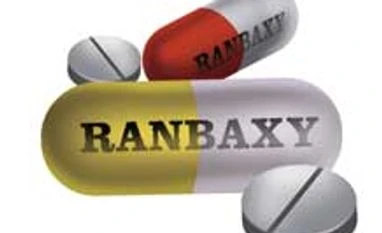While the new management, with many Japanese representatives on board, has repeatedly assured its stakeholders of corrective actions and better compliances, the drug maker appears to have failed to address the problems on the ground.
"The problem is though Daiichi Sankyo has changed the management of Ranbaxy, it has failed to change the people or their behaviour at the ground level. As a result, factories continue to function the way they used to before the Japanese parent came on board," said a sectoral official.
More From This Section
| RANBAXY’S TROUBLES |
|
Ranbaxy's market capitalisation has also suffered significantly in the past few years, down to Rs 14,000 crore.
Ranbaxy's two key units in India, Paonta Sahib (Himachal Pradesh) and Dewas (Madhya Pradesh), were barred from supplying to the US in 2008 just before the acquisition of the company by Daiichi Sankyo. However, the company took four years to reach a settlement with the US authorities and sign a consent decree for taking corrective measures in these facilities. More, the new management pleaded guilty to the US authorities for fraudulent activities and paid a hefty fine of $500 million. Even after all this, the two factories are yet to get a clean chit from the USFDA for resuming supplies to the market. On the contrary, two more factories in India, a newly-commissioned formulation plant in Mohali (Punjab) and an active pharmaceutical ingredient (API) plant in Toansa, have come under the US import alert, putting a full stop on supply to the US from India.
The latest observations by the USFDA after inspecting Ranbaxy's Toansa factory shows the management had failed to put enough checks and balances and implement corrective measures despite the USFDA authorities discussing several issues with the company in 2012. Citing the absence of adequate controls over computersied systems, USFDA authorities said in Form 483, "This is a repeat observation from the previous inspection in December 2012". In another instance, where a significant build-up of melting ice was found in a refrigerator storing working standard sample containers, FDA inspectors noted, "This observation was discussed with the management during the previous inspection close-out meeting in December 2012".
Analysts said Ranbaxy has largely opted for the hybrid model with Daiichi Sankyo where it will use its sales network to market the parent's medicine. "This is not a very promising model for a company like Ranbaxy, which once had its own product pipeline and clocked significant revenue," another analyst said.
The company in five years has lost various product opportunities in the US. Ranbaxy also recalled generic Lipitor from the US in November 2012 after glass particles were found in its samples. While it managed to monetise some products by entering into partnership for a revenue-sharing arrangement, many key products such as the generic version of Diovan, Nexium and Valcyte continue to await approval from the US. While timely approval for these products may bring back lost glory for Ranbaxy, the company has so far disappointed its stakeholders.
)